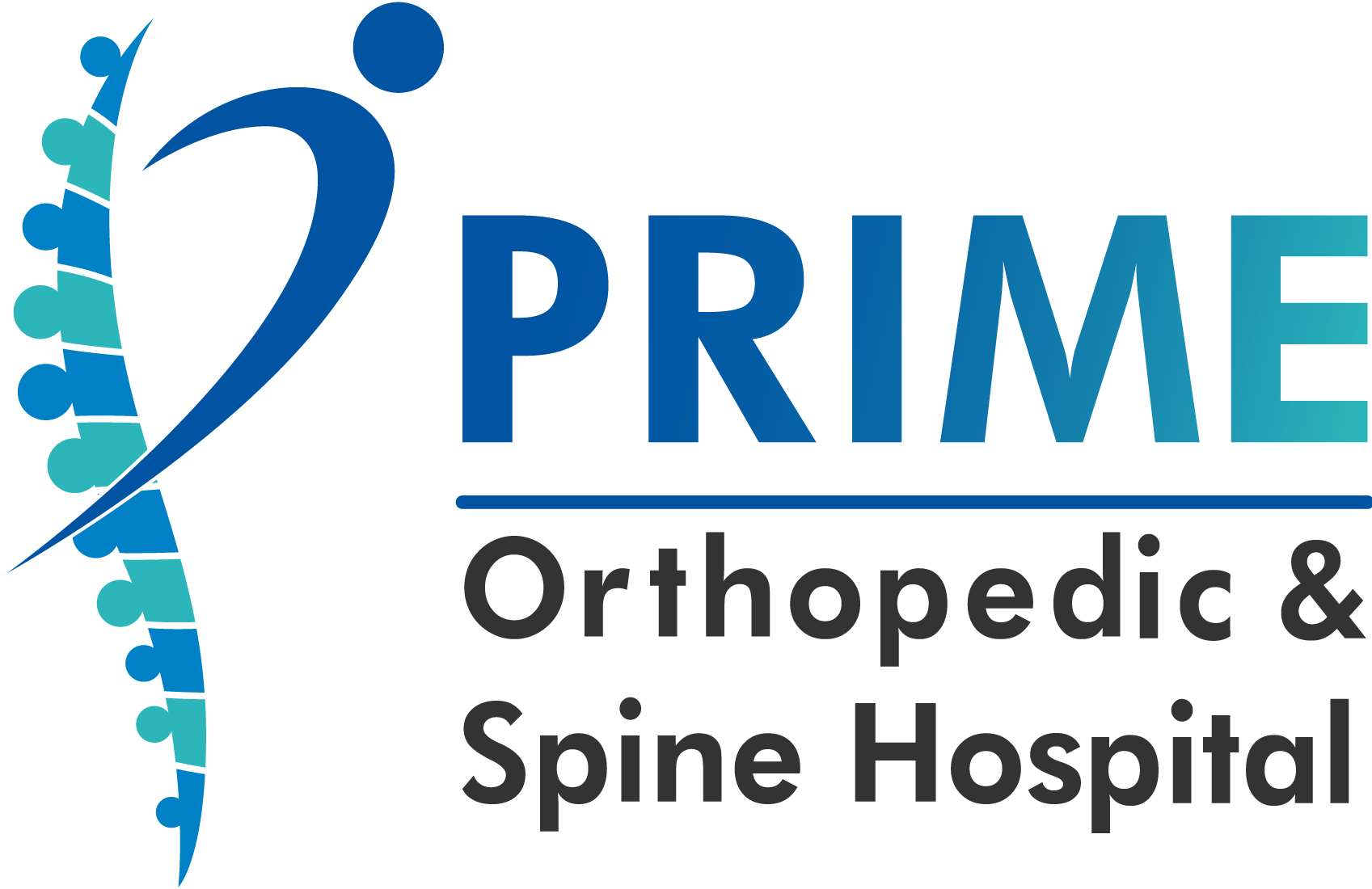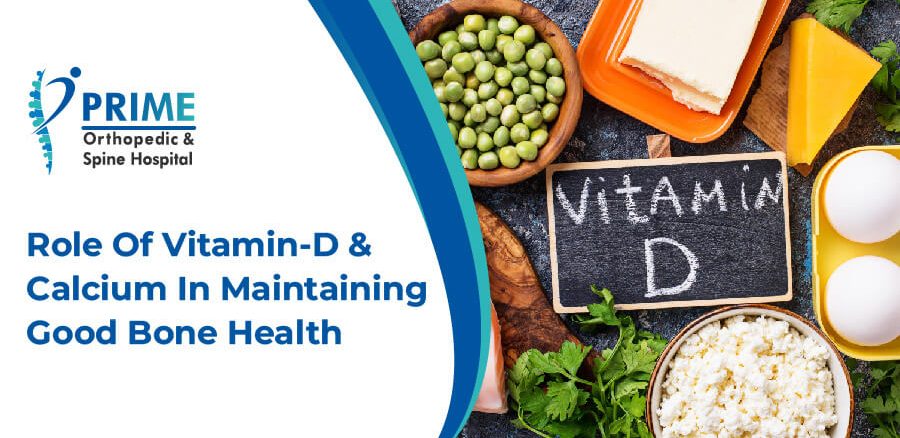According to Business Standard, “As many as 68 per cent of urban Indians do not practice preventive healthcare at an early stage, when they do not suffer from lifestyle disorders, a new study has found.”
Are you one of them?
Often we eat food without ever analyzing its effect on our bodies. As an orthopedic surgeon working at the bone and joint hospital, at Anand, I wish to guide you all about the importance of vitamins and minerals for bone health.
Also, I wish to guide you about what kinds of diseases you are prone to if you’re deficient in vitamins.
Before we proceed, I want to tell you about the importance of vitamins and minerals.
Importance of Vitamins and minerals
- Vitamins are made up of carbon and other elements whereas there is no carbon content in the minerals.
- Vitamins help to absorb energy from the food we eat.
- Vitamins make collagen. It is useful to strengthen your skin, build bones, fortify your vision, and combat harmful oxidative damage.
- Minerals help in nerve transmission and the making of DNA
- Fat-soluble vitamins bind to the body and stick to the fat in the food that we eat. Examples are Vitamin A, D, E, and K
- All other vitamins, vitamin C and vitamin B complex are water-soluble and directly absorbed in the cell.
Which Vitamins Are Vital For Your Bones?
Vitamin D
As a bone and joint hospital, I often urge my patients to check their Vitamin D levels regularly. This is because we have been taught in school that Calcium is necessary for healthy bones and teeth but we often forget that Vitamin D is the vitamin that is necessary for the absorption of calcium in the body.
The role of Vitamin D in our body is to:
- Absorb dietary calcium and phosphorus from the intestines
- To suppress the release of parathyroid hormone. For your information – the parathyroid hormone causes bone breakdown.
Now that you know the importance of Vitamin D for bone health, you must know what normal levels of Vitamin D are required in our body.
Normal levels of Vitamin D
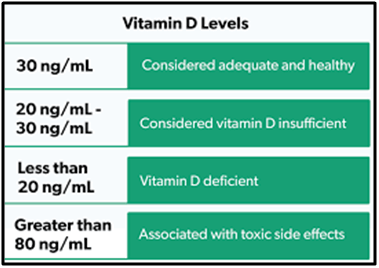
In case of deficiency, as an ortho hospital, we suggest taking supplements of Vitamin D3. It comes in the form of tablets or liquid.
However, you must not take any such medicine on your own without consulting an orthopedic hospital. Excess Vitamin D can do more harm to your body.
As an orthopedic doctor working at a bone hospital I request my patients to get their bone density checked and keep a close eye on Vitamin levels. It can save you from lot more future bone-related complications.
Who are at risk of low levels of Vitamin D?
- People who are over 50 years of age
- People who get very little exposure to the Sun
- People who have kidney disease or conditions that affect how their bodies absorb minerals
- People who have darker skin
- lactose intolerant people, meaning they can’t digest the sugar in dairy foods
- People who eat only vegan food
- Infants
- Those who take certain anticonvulsant drugs
Calcium
Probably you will find it un-interesting if I try to guide you about the intake of Calcium for healthy bones, but it is very much necessary for healthy bones.
Role of Calcium in our body:
- It reduces the risk of fractures
- Consuming Calcium in childhood leads to high bone mass and increases bone density.
- It helps to reduce blood pressure and controls cholesterol levels
- It helps to prevent tooth loss.
Normal Levels of Calcium

Which orthopedic diseases can occur if you are deficient in Vitamin D and Calcium?
Low levels of Calcium or Vitamin D can drastically affect your bone health. As an ortho doctor, I have seen that most women face the problems of osteoporosis after menopause. This is because of hormonal imbalance and low levels of Calcium.
Apart from that the other diseases or problems that you can face due to the deficiency of Vitamin D or Calcium are:
- Fractures
- Hair cracks at the slightest fall
- Osteoporosis
- Muscle aches and other problems
- Extreme fatigue
- Nail and skin problems
- Osteopenia
- Dental problems
- Dental problems
What are the dietary sources for Calcium and Vitamin D?
Calcium-rich Foods
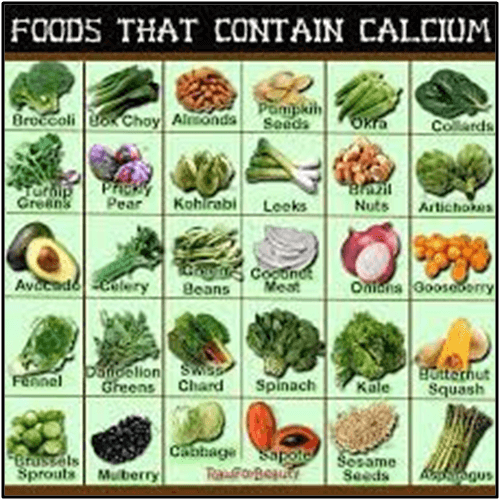
Vitamin D-rich foods
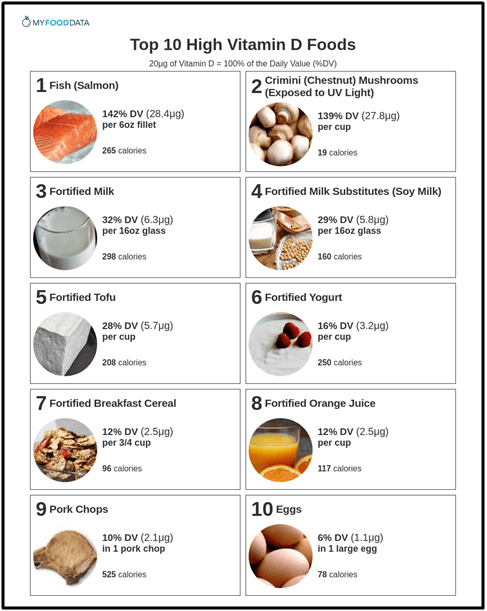
I hope all of you will pay attention to what I have said about the intake of Vitamins and Vitamin D. Broken bones can be mended and surgeries can be done but it is always better to be safe.
As a senior doctor working with an orthopedic hospital, it is my request to you to take care of your bone health with proper intake of food, supplements and regular tests for monitoring the bone density levels and the levels of vitamins in your body.
